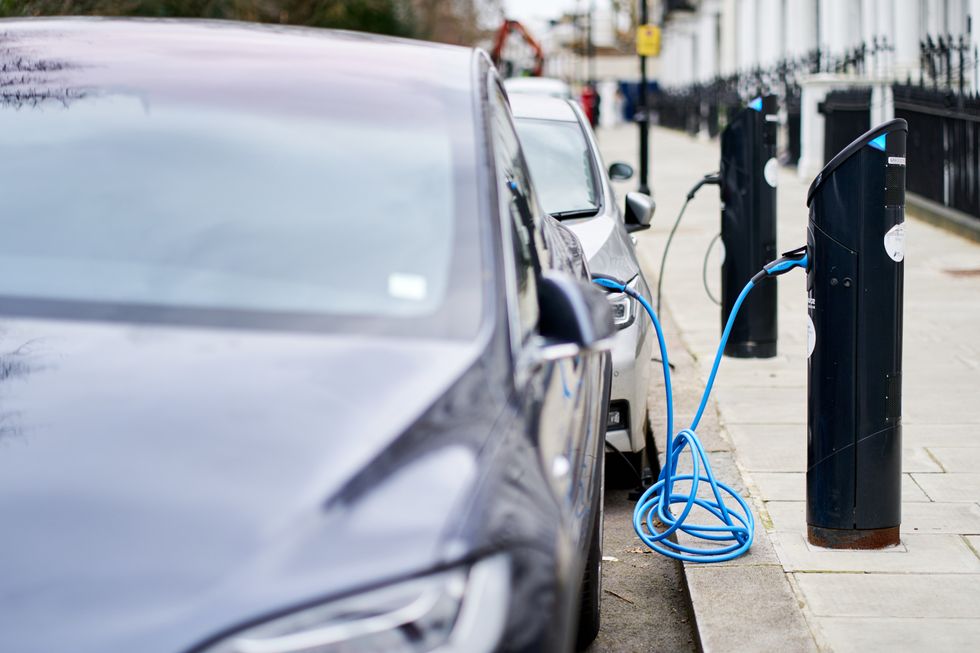Revolutionary technology set to be rolled out offering cost-saving solutions for electric car drivers
Motorists spend £1,000 more annually on EV costs than drivers who can charge from home
The technology can help electric car owners save hundreds of pounds on charging
Don't Miss
Most Read
Motorists are set to benefit from a revolutionary electric vehicle charging solution for residents without driveways offering a cheaper alternative.
Charge Gully has developed an innovative solution to address a significant issue faced by many homeowners in Wales, where terraced houses are particularly common.
The company's pavement channel allows EV owners to safely run charging cables from their homes to their vehicles without obstructing pedestrians.
The channel sits flush with the pavement, ensuring it doesn't create a trip hazard for pedestrians. It also self-closes when not in use, providing a secure and tamper-proof option for overnight charging.
Do you have a story you'd like to share? Get in touch by emailingmotoring@gbnews.uk

Drivers can apply for a grant to help with the cost of installing an EV charger
PAThis breakthrough comes at a crucial time, as the transition to electric vehicles gains momentum across the UK, although drivers are still concerned about how to charge and how much it will cost.
Ian Mach, Director of Charge Gully, said: "Being a Welsh company, we are eager to deploy our technology in Wales to help the many residents living in terraced houses, and other houses without driveways, charge their electric cars cheaply and conveniently from home."
The issue of EV charging for homes without driveways is particularly pressing in Wales. According to the 2021 Census, Wales has the highest proportion of terraced houses in Great Britain, with 27 per cent of houses being terraced.
This housing landscape presents a significant challenge for EV adoption. Residents of terraced homes often lack space for a driveway, forcing them to rely on public charging networks.
Research by Zapmap indicates that EV drivers unable to charge at home spend over £1,000 more annually than those with home chargers.
In some cases, this additional expense can make an additional barrier for drivers choosing an EV over a traditional petrol or diesel vehicle.
This innovative design addresses the practical challenges of home charging for those without driveways. It also hopes to eliminate the need for expensive public charging and allows EV owners to benefit from cheaper home electricity rates.
The company is set to install over 80 units across England and Scotland as part of a large-scale trial with plans underway to introduce the first trials in Wales soon.
The technology has already garnered significant attention, receiving twoGovernment grants and securing a place in two Innovate UK programmes, highlighting the potential impact of their solution.
Grants from the Department for Transport can help towards the cost of installing an EV chargepoint socket at someone's property. The grant can either help them get 75 per cent off the cost to buy and install a socket, or they can claim up to £350.
Drivers can apply for the grant if they own or rent a residential property where they live, are willing to install a cross-pavement charging solution alongside the chargepoint, such as cable covers or mats which can be placed on top of a cable.
To be eligible, drivers must not already installed the chargepoint as the grant cannot be backdated, have adequate on-street parking and not have private and exclusive access to off-street parking such as a driveway, garage or residential car park.
LATEST DEVELOPMENTS:

It is cheaper to charge an electric vehicle at home than at public stations
Motorists must have permission from the local planning and highways authority to install a chargepoint and a cross-pavement charging solution between the home and the approved parking space
In March, the previous Conservative Government provided funding worth £381million to local councils to install more chargepoints in their local area.













